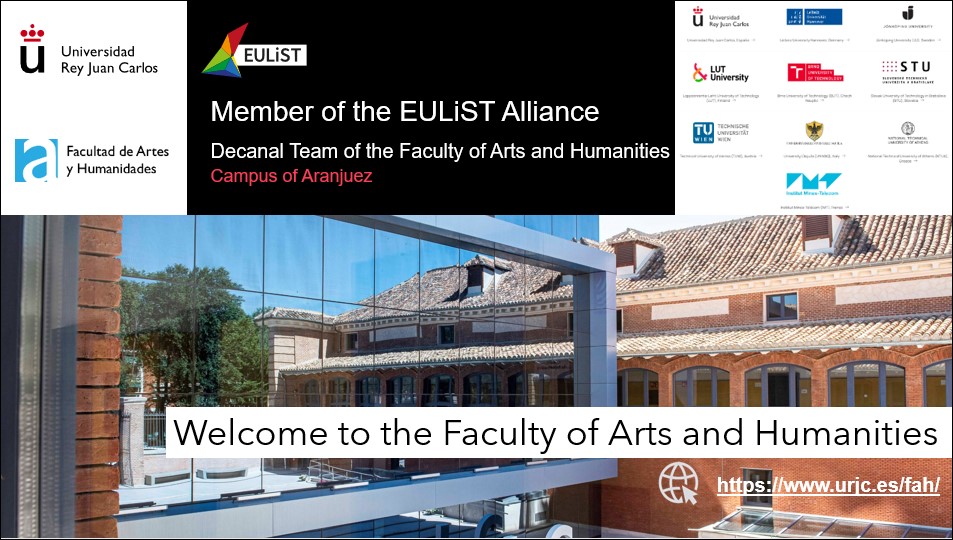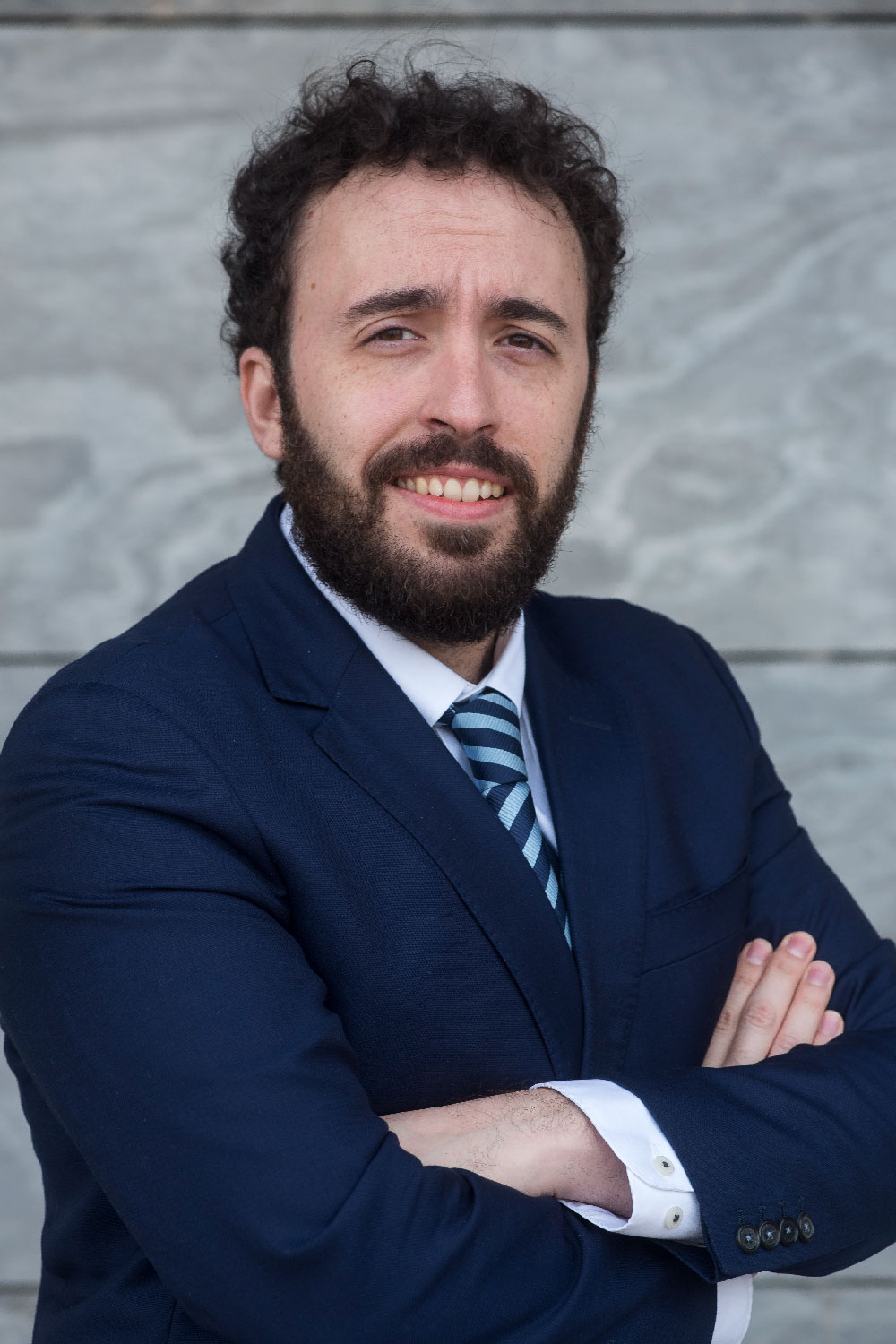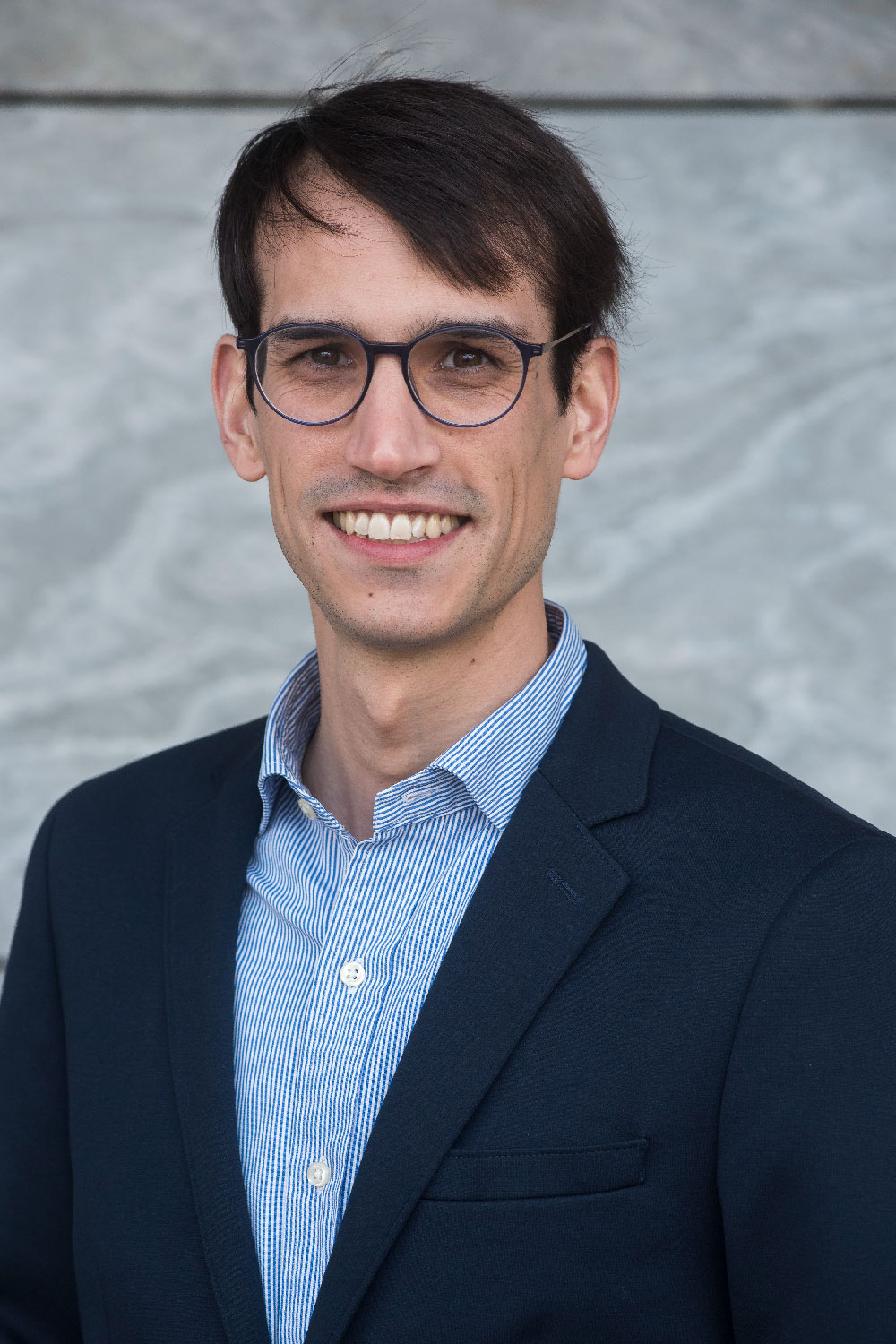Welcome
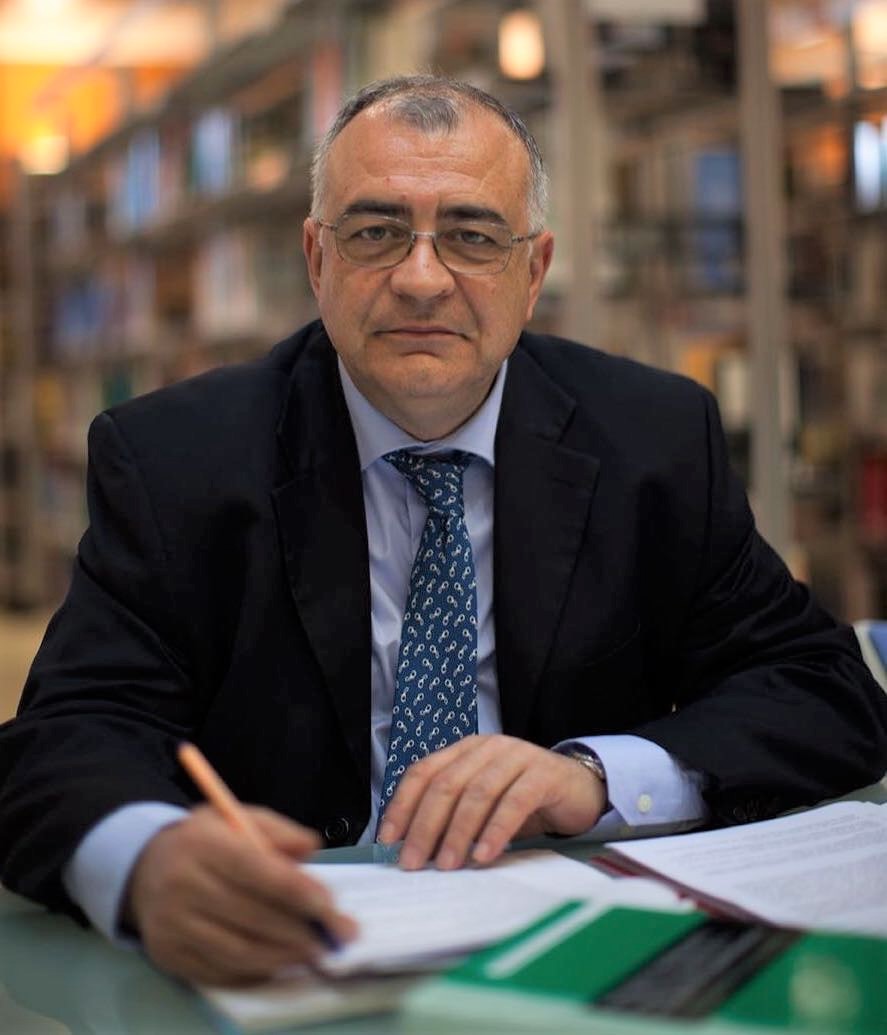
Our Faculty is very young; does not reach the year of life. Our teaching takes place in the Aranjuez and Madrid-Quintana Campuses, very focused on Fine Arts and in the Campus of Fuenlabrada and Móstoles, more focused on Humanities.
It has been a while since good times have passed for artistic and humanistic teachings. The hyper-technification of our current society, the value that is given to the immediate application of knowledge, sometimes a slightly superficial vision of the concept of "utility", do not favor much appreciation of humanistic knowledge. Sometimes it seems that these ancient knowledges only come to the fore in relation to ephemeris and special occasions. In the year 2022, for example, the five hundredth anniversary of the death of Nebrija. And, during 2023, the five hundredth anniversary of the birth of another distinguished teacher from the University of Salamanca is celebrated, the brocense. I would say that this last celebration is going more inconspicuous. But both one and the other played a fundamental role in the Spanish and European Renaissance. One restored the knowledge of the classical authorities through the return to the latin classics: Knowing the language well was the basis for the renewal of all knowledge. The Brocense marked a new turn in that trajectory, emphasizing the philosophical, rational and universal character of language. That is why his name came to the fore when Chomsky and Lakoff discussed the precedents of modern language theories. His later influence was incredible.
However the Humanities do not live on ephemeris. The profound consequences of the intellectual legacy of these and so many leading figures have more to do with understand the human being, their dignity, their deepest expressions, their limits and the limits that they must know how to impose on their actions. Making this understand is the task of each generation of intellectuals. If the Humanities decay, mere thoughtless dogmatism grows in its place, as a substitute. If Art devalues its scope it is easily content with mere provocation. It is everyone's task, in fact, to ensure that humanistic knowledge does not decline, what Nebrija called, already in Spanish, the "arts of humanity", which make us live, he said, "in this great company that we call the city": there will be no “citizenship” without a humanistic culture and without an aesthetic sense.
I think this is a key question. Of course the new generations of humanists must also focus on applying their knowledge in a thousand different ways, collaborating with colleagues from many other disciplines. But this is just a way of helping research, enriching it and putting it at the service of society in a thousand new ways. Cultivating the Arts and Humanities from the university will create educated professionals. "Culture is what remains when it seems that everything that was learned has been forgotten"said a famous essayist. Let's try not to stop teaching the arts of humanity, that the culture does not wither, that the person does not wither.
Miguel Angel Esparza Torres
Dean of the Faculty of Arts and Humanities
About us
The Faculty of Arts and Humanities of the Rey Juan Carlos University teaches its degrees on the Madrid, Fuenlabrada, Móstoles and Aranjuez campuses. The Dean's Office of the Faculty is located in this Royal Site and Villa de Aranjuez, which has several historical buildings in this privileged environment that forms a unique "Cultural Landscape", declared a World Heritage Site by UNESCO. The location of the Faculty of Arts and Humanities allows it to offer a wide educational offer to the municipalities in the south of Madrid and makes it a strategic point of communication with the north of Castilla-La Mancha.
The recently created Faculty (BOCM no. 238, of October 6, 2022), brings together areas of knowledge related to the branch of Arts and Humanities: Archaeology, Historiographical Sciences and Techniques, Drawing, Sculpture, Aesthetics, and Arts Theory. , Philosophy, Human Geography, Ancient History, Contemporary History II, History of America, History of Science, History of Art, Medieval History, Modern History, General Linguistics, Spanish Literature, Painting and Theory of Literature and Comparative Literature.
Around one hundred and eighty male and female professors teach on the Fuenlabrada, Móstoles, Madrid (Vicálvaro and Quintana) and Aranjuez campuses. The collaboration and interdisciplinarity offered by the Faculty of Arts and Humanities represents a renewed boost to the degrees it coordinates, offering its students a quality higher education. These include not only the degrees attached to the Faculty itself, but also many other Double Degrees developed in collaboration with other faculties.
The teaching and research staff of the Faculty carry out an intense activity in different fields of knowledge, through the management and participation in competitive research projects (European, national and regional). The commitment of teachers to teaching innovation is manifested in the activity of their teaching innovation groups and the educational innovation projects that they develop in thematic areas such as heritage, history, linguistics, education, digital humanities or cultural tourism. We have a large number of subjects in our grades in which innovative teaching techniques are applied such as "Project-based Learning", the "Flipped Classroom", the use of digital tools (ICTs) for teaching, immersive learning or "gamification", among others, which positions our studies at the forefront of the teaching of Arts and Humanities at the Madrid public university.

Welcome and presentation
- Who are we?
- Where are we located?
- What can you study in our Faculty?
Learn about us here (click on the picture):
Government team
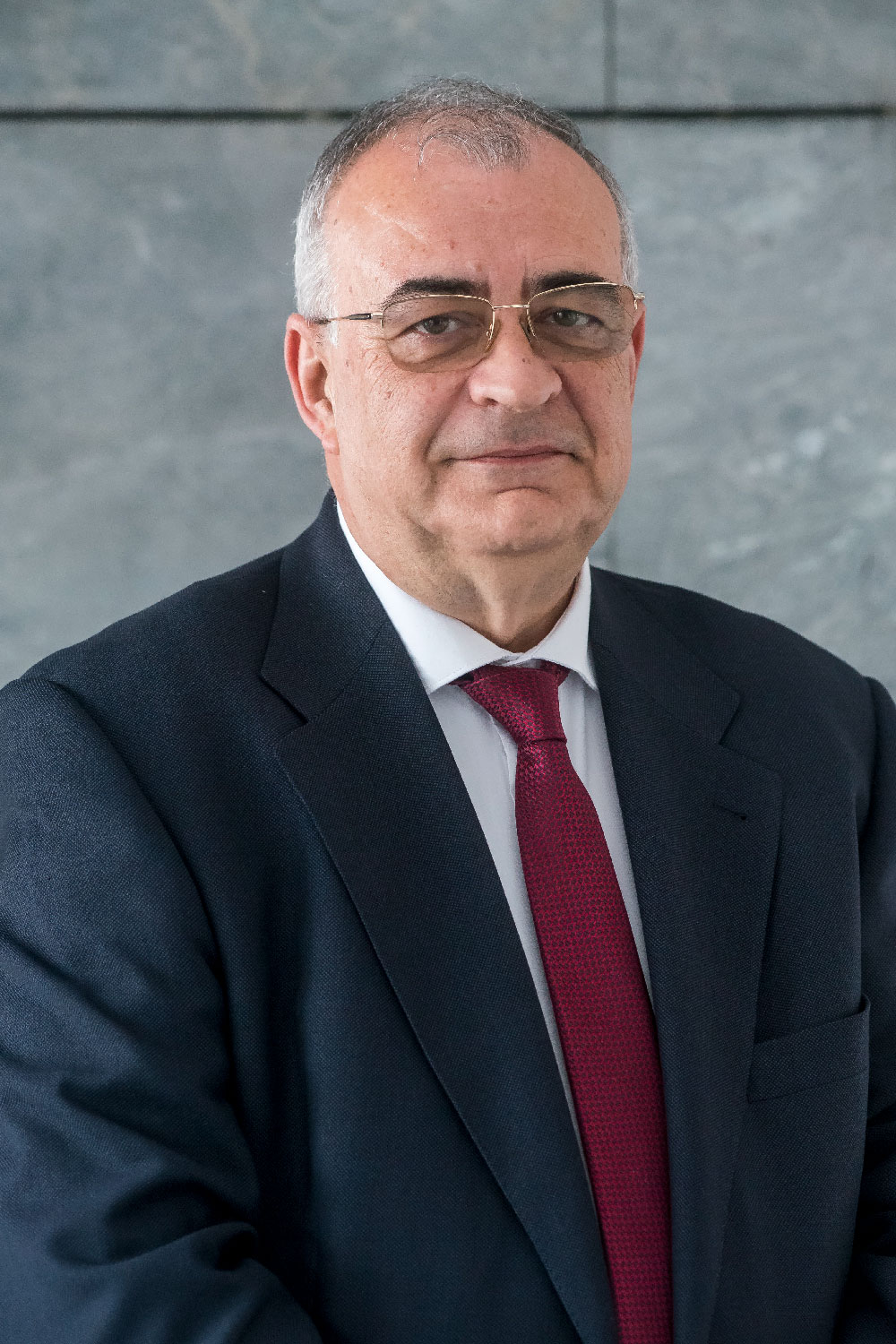
.jpg)
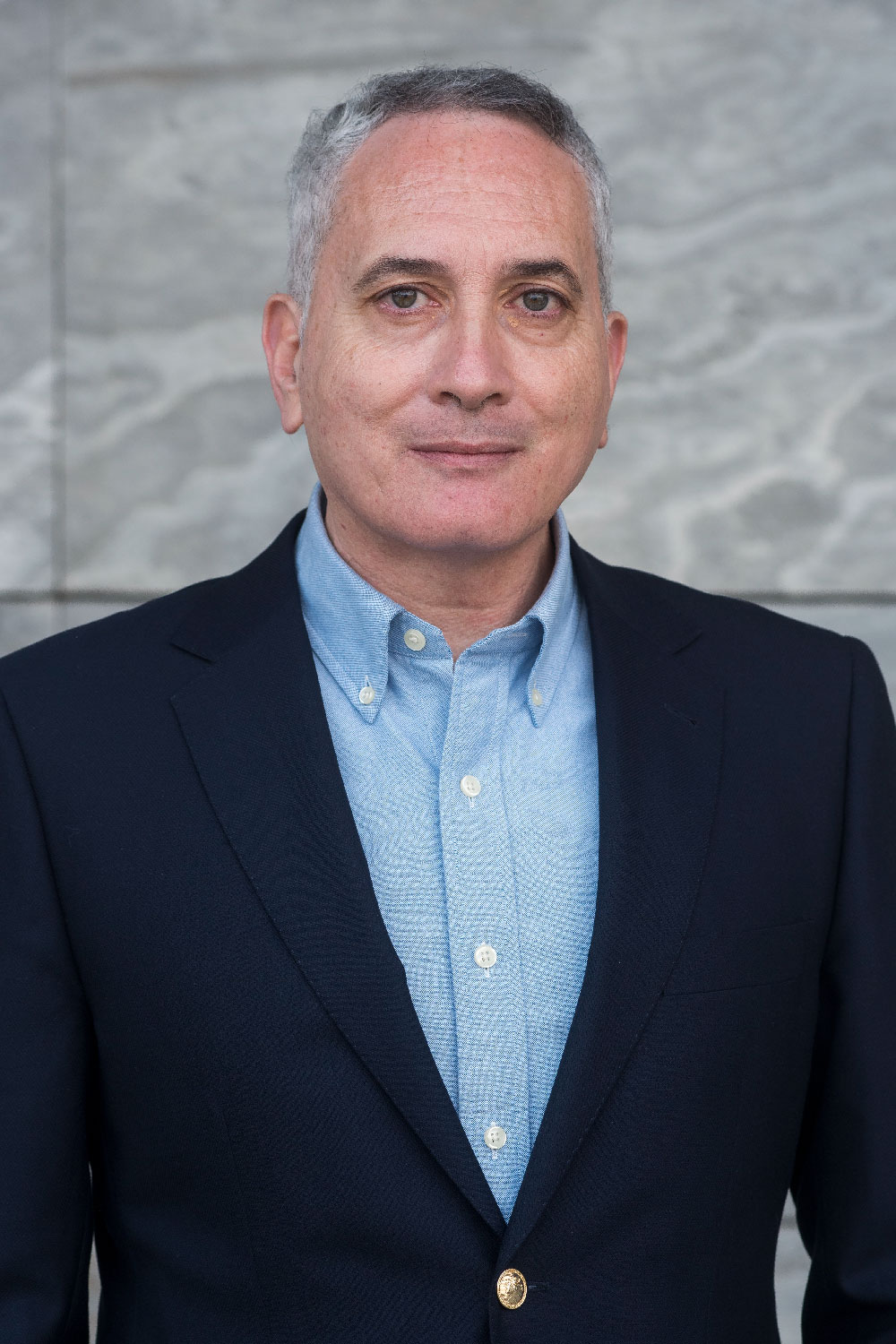
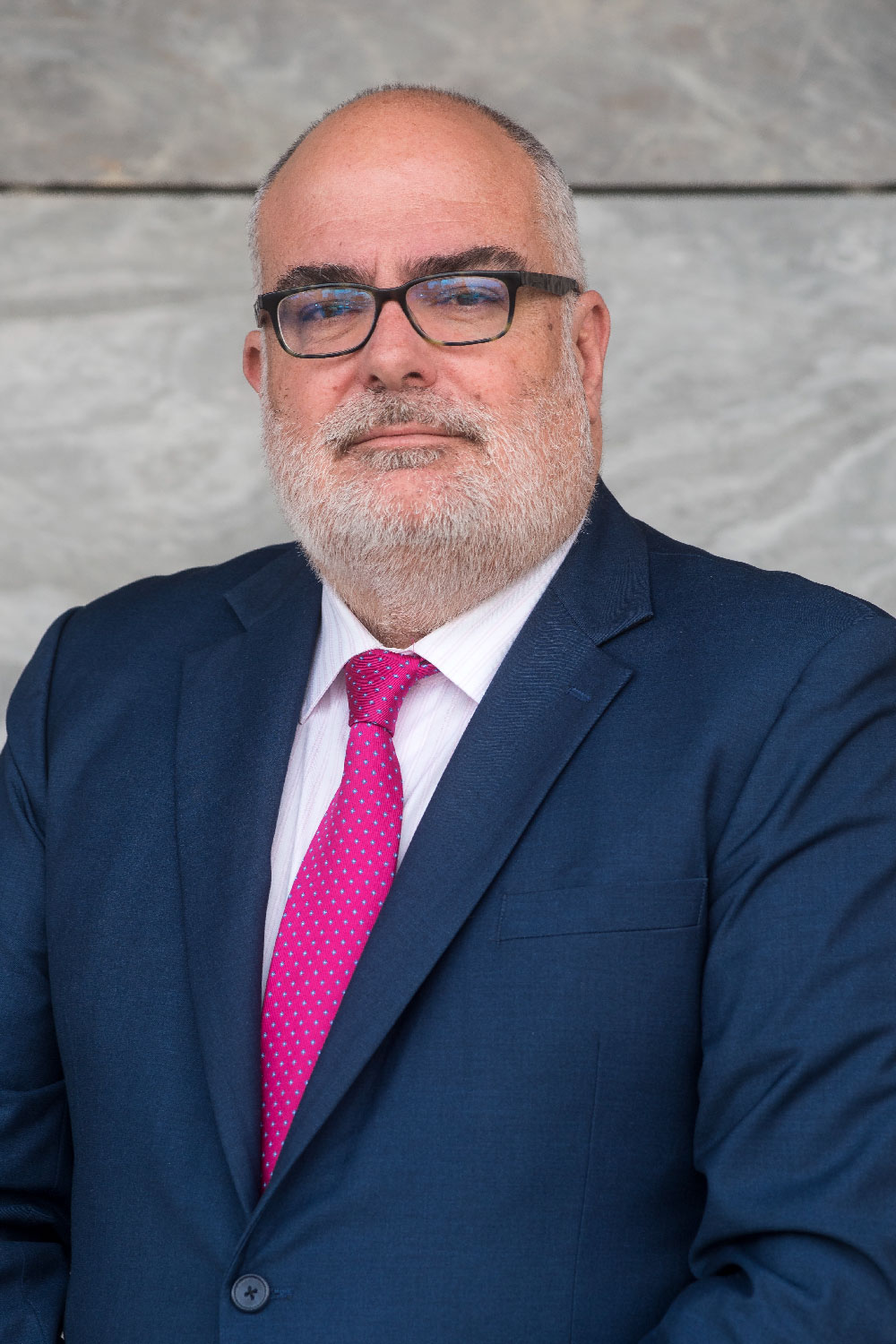
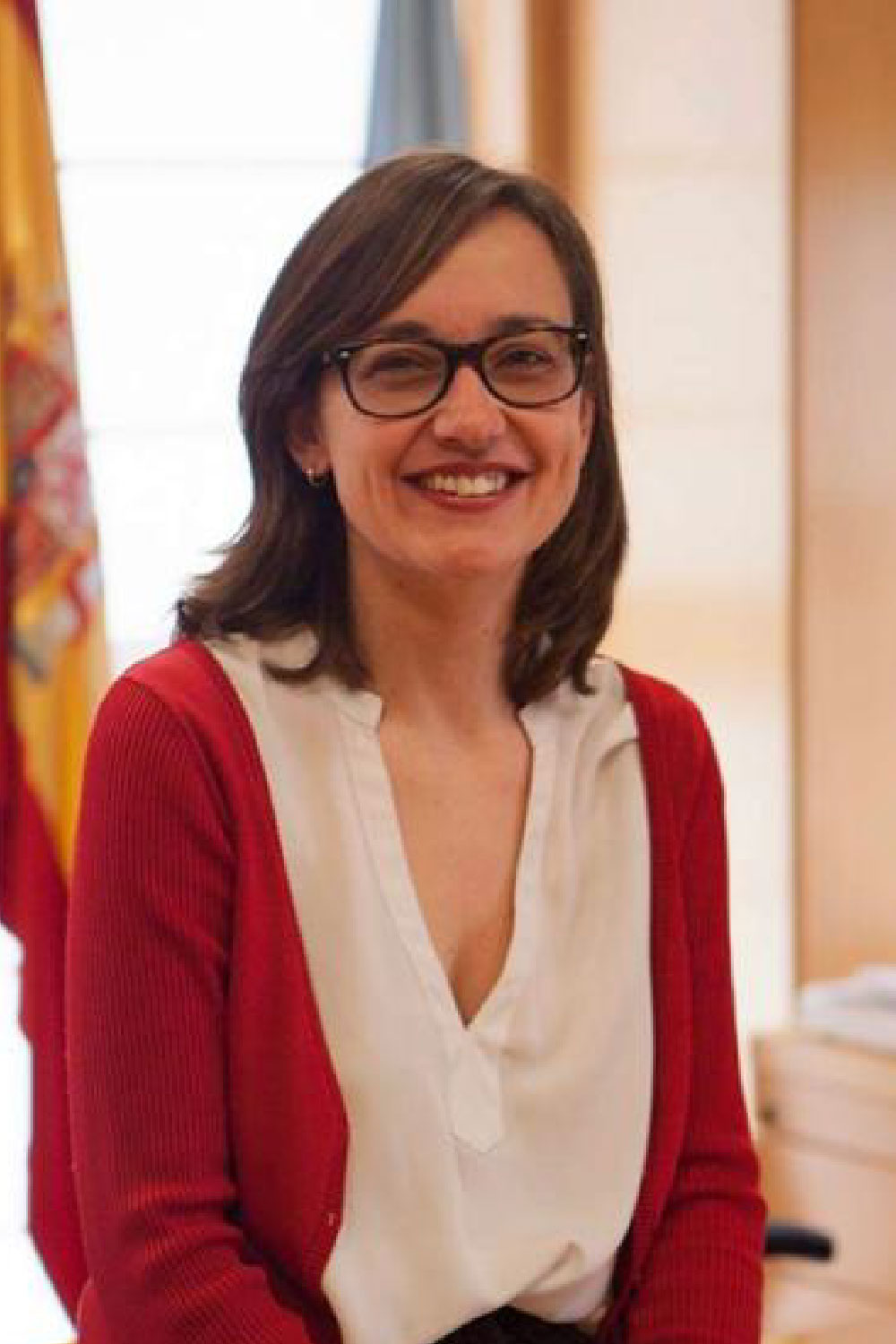
.jpg)
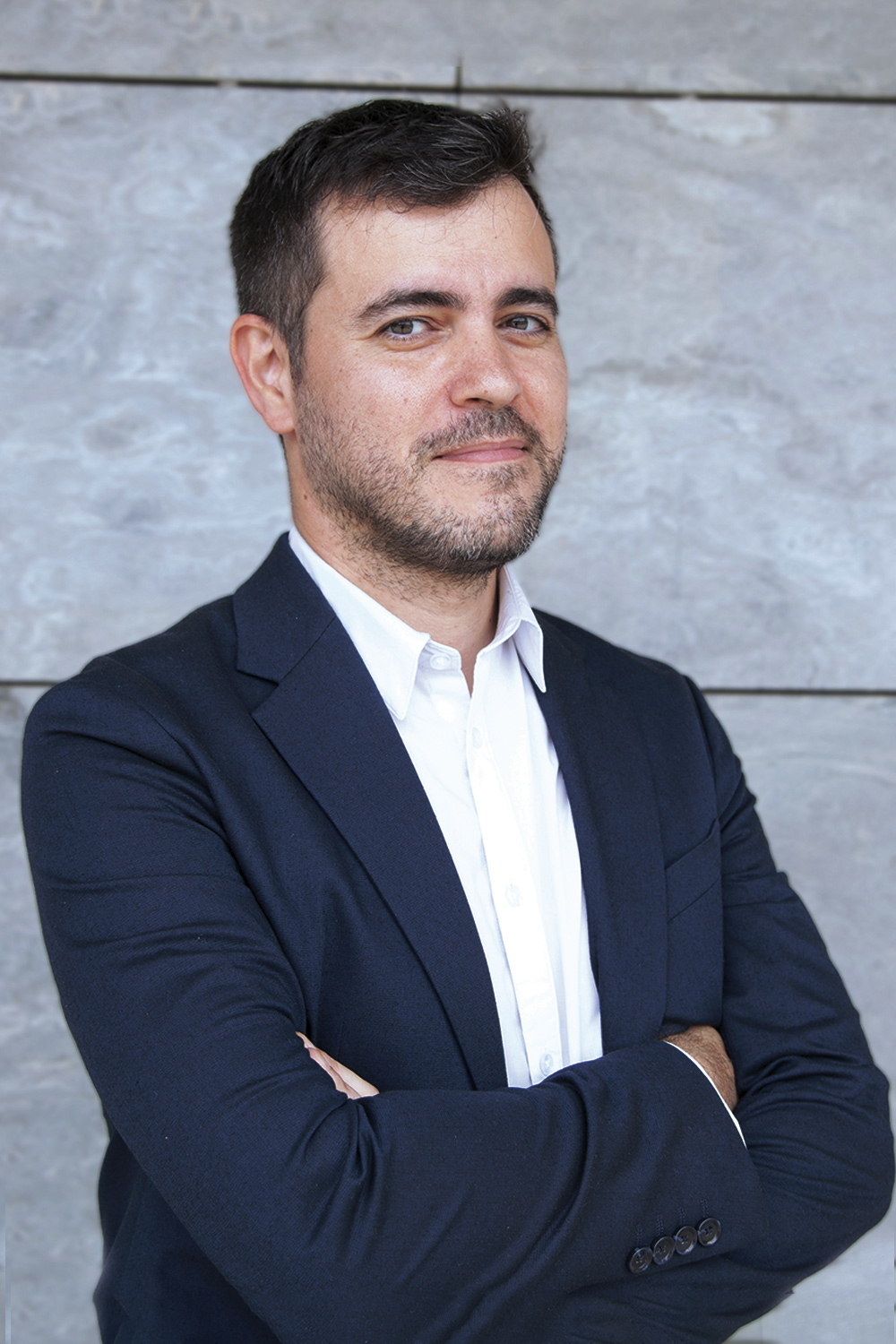
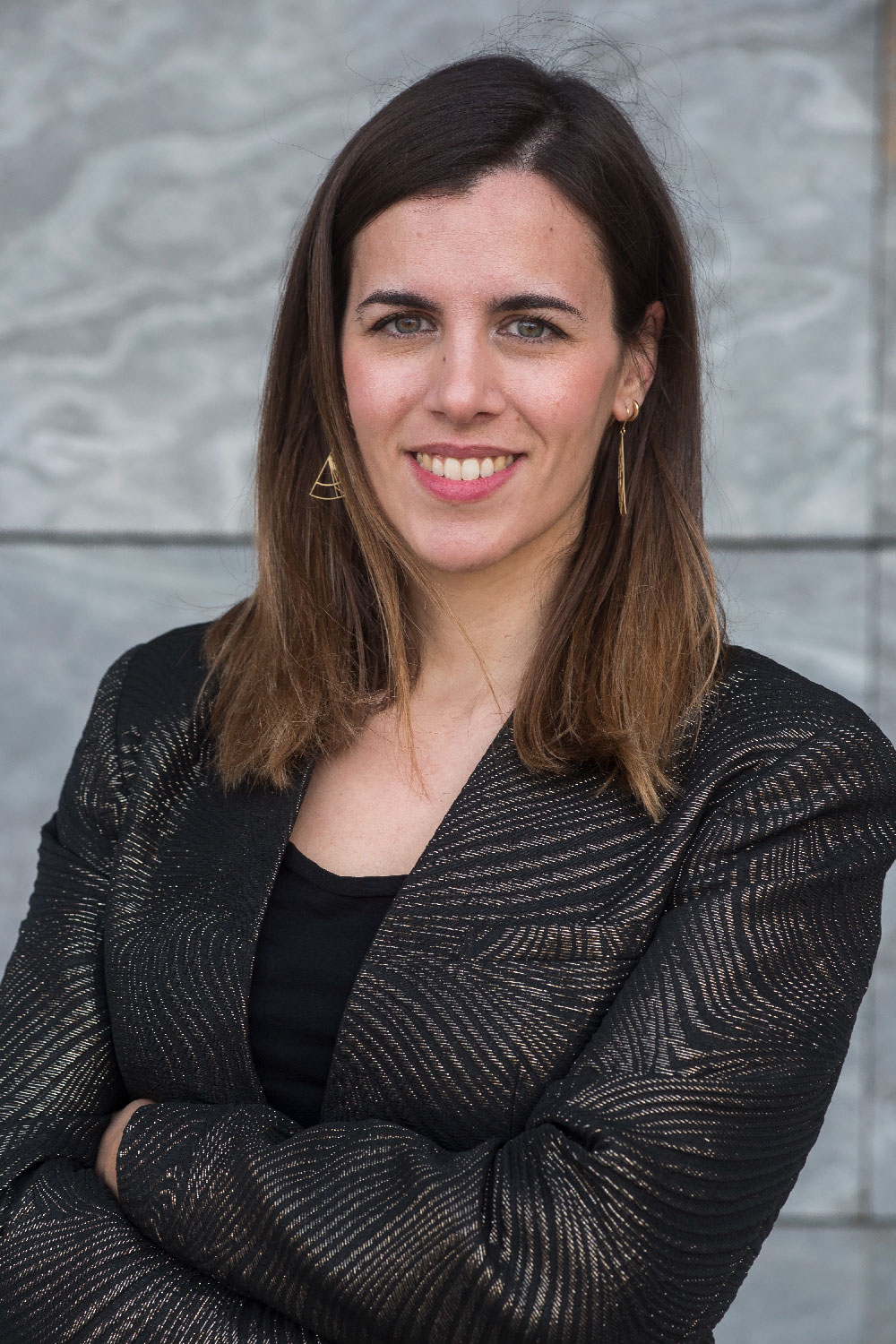
Helena Dominguez del Triunfo
Academic Coordinator of Pre-University Orientation and Information
Coordinators
Fine Arts
Comprehensive Design and Image Management
Fashion Design and Management
Philosophy
History
Spanish Language and Literature
Translation and interpretation
Departments
Department of Arts and Humanities
Director: Pablo Prieto Davila -
Academic Secretary: Cristina Victoria Herranz Llacer - Phone: 91 488 4406
Commissions
- Center Quality Assurance Commission (CGCC)
- Degree Quality Assurance Commission
- Complaint Commission for continuous evaluation - Information for students in the tab "Students"
- FAH Library Commission
- FAH Compensation Court - Information for students in the tab "Students"
- FAH Extraordinary Awards Commission
- FAH Final Degree Project Commission
- FAH Academic Exemption Commission
- FAH External Practices Commission

